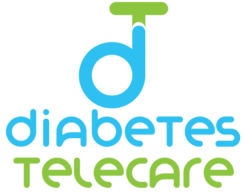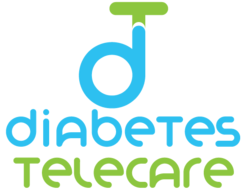
-
Posted By Diabetes TeleCare
-
-
Comments 0
Living with diabetes means being mindful of sugar intake. Many people with diabetes wonder about honey as an option. Honey tastes sweet and has some health benefits. But is honey truly safe for diabetics?
This question matters for anyone managing blood sugar. Natural doesn’t always mean better for blood glucose. Let’s explore whether honey can be a good choice. We’ll look at what science says about honey for diabetics.
Understanding the facts helps make informed decisions. Your health journey deserves accurate information.
Nutritional Facts of Honey
One tablespoon (21g) of honey typically contains:
- Calories: 64
- Carbohydrates: 17g
- Sugars: 17g (primarily fructose and glucose)
- Protein: 0g
- Fat: 0g
- Fiber: 0g
- Water: 17%
Glycemic Index of Honey
The glycemic index (GI) of honey typically ranges from 55-70, depending on the variety and floral source. This is slightly lower than table sugar at 65 but still considered moderate to high. Lighter honey varieties generally have higher GI values than darker ones. The fructose content in honey affects how quickly it raises blood sugar levels compared to other sweeteners.
Health Benefits of Honey
Natural Antioxidant Protection
Honey contains powerful antioxidants called flavonoids and phenolic compounds. These compounds help protect your body from damage caused by free radicals. Darker honey varieties typically contain more antioxidants than lighter ones.
Regular consumption may help reduce oxidative stress in your body. Antioxidants support overall health and may help prevent chronic diseases.
Antimicrobial Properties
Honey has natural antibacterial and antifungal properties. It contains hydrogen peroxide, which fights against harmful microorganisms. Many cultures have used honey for centuries to treat wounds and burns.
Medical-grade honey is now used in modern wound dressings. Its low water content and acidic nature create an inhospitable environment for bacteria.
Soothing Coughs and Sore Throats
Honey works as a natural cough suppressant, especially for children over one-year-old. It forms a protective layer in the throat, reducing irritation. Many people find relief from sore throats by mixing honey with warm tea.
Studies show honey may be as effective as some over-the-counter cough medicines. The thick consistency helps coat the throat for longer-lasting relief.
Digestive Health Support
Honey may help with digestive issues like diarrhea and acid reflux. It contains prebiotics that feed beneficial gut bacteria. Some people use honey to soothe stomach ulcers and gastritis.
It may help reduce inflammation in the digestive tract. Ancient healing traditions often included honey in digestive remedies.
Potential Heart Health Benefits
Regular honey consumption may help improve cholesterol levels. It can slightly raise “good” HDL cholesterol in some people. Honey contains compounds that may help lower blood pressure.
The antioxidants in honey support overall cardiovascular health. However, moderation is key due to its sugar content.
Is Honey Good for Diabetic Patients?
For people with diabetes, honey requires careful consideration. Honey is still a form of sugar that affects blood glucose. It has a glycemic index of 58-69, lower than table sugar but still high.
One tablespoon of honey contains about 17 grams of carbohydrates. These carbs can raise blood sugar levels quickly. Honey does contain small amounts of vitamins and minerals.
It also has antioxidants that regular sugar lacks. However, these benefits may not outweigh the blood sugar impact. Most diabetes experts recommend limiting honey consumption.
If used, honey should be counted as part of your carbohydrate budget. Always monitor your blood glucose when trying any sweetener. Some people with diabetes may handle small amounts of honey better than others.
Talk with your healthcare provider before making dietary changes. Your individual diabetes management plan should guide your decisions.
Honey vs. Sugar: Which Is Better for Diabetes?
When comparing honey and sugar for people with diabetes, neither is truly “good.” Honey has a slightly lower glycemic index than table sugar. This means honey may raise blood sugar a bit more slowly.
Both still impact blood glucose significantly. Honey contains small amounts of vitamins and minerals. Regular sugar provides no nutrients beyond calories. Honey has antioxidants that table sugar lacks.
However, these benefits are minimal compared to the carbohydrate content. The amount used matters more than which sweetener you choose. Many diabetes experts suggest limiting both honey and sugar.
Your individual glucose response should guide your choices. Some people with diabetes tolerate small amounts of honey better than sugar. Others may see similar blood sugar spikes with both sweeteners. Testing your blood glucose after consuming either can provide personal insight.
Is Honey Dangerous for Diabetics? Risks and Considerations
Honey isn’t inherently dangerous, but it requires careful management. It contains concentrated carbohydrates that raise blood sugar levels. One tablespoon provides about 17 grams of carbs.
This can cause rapid blood glucose spikes if not accounted for. Consuming honey without adjusting insulin or medication can be risky. Some people mistakenly believe honey doesn’t affect blood sugar.
This misconception could lead to poor glucose control. Large amounts of honey can contribute to hyperglycemia. Honey affects each person with diabetes differently. The risk increases if honey replaces healthier food choices.
Marketing sometimes portrays honey as “diabetic-friendly” incorrectly. Always discuss sweetener choices with your healthcare provider. Regular blood glucose monitoring helps identify personal responses.
Is Raw Honey Good for Diabetics?
Raw honey offers slightly more nutrients than processed varieties. It contains more enzymes, pollen, and antioxidants. However, raw honey still affects blood glucose significantly.
The carbohydrate content remains essentially the same. Some claim raw honey has a lower glycemic impact. Research shows minimal differences in blood sugar response. Raw honey may contain beneficial compounds for overall health.
These benefits don’t necessarily make it “good” for diabetes management. The unfiltered nature provides more bioactive compounds. These compounds don’t negate the blood sugar impact.
Raw honey should still be counted in your carbohydrate budget. Portion control remains essential with any type of honey. Consider raw honey a treat rather than a regular addition to your diet.
How to Use Honey in a Diabetes-Friendly Diet
Limit the Quantity
- Use a teaspoon or less.
- Count it in your daily carbs.
- Replace other sugars—don’t add extra.
Pair and Time Well
- Combine with protein or healthy fats.
- Take around physical activity for better carb handling.
Choose Wisely
- Pick darker honey for more antioxidants.
- Go for fiber-rich honey foods.
- Avoid processed junk with added honey.
Track and Adjust
- Monitor blood sugar before and after use.
- Consult a dietitian for safe inclusion.
- Remember, everyone’s tolerance is different.
Conclusion
Managing diabetes requires thoughtful food choices every day. Honey for diabetics remains a complex topic with no simple answer. Moderation is the key message when considering honey consumption. Your personal glucose response should guide your decisions.
Small amounts may fit into some diabetes management plans. However, honey is not a “free food” for people with diabetes. Always count honey as part of your carbohydrate budget. Work closely with healthcare providers on dietary decisions.
Blood glucose monitoring provides valuable personal feedback. Remember that natural doesn’t automatically mean blood-sugar friendly. The nutritional benefits of honey do exist but in small amounts. Focus on an overall healthy eating pattern for diabetes management.
Make informed choices based on reliable information. Honey for diabetics can occasionally be part of a balanced approach. Your diabetes journey is unique to you and your body’s needs.
Consider booking an appointment with our specialist for personalized care and deeper insights into managing diabetes. Your health deserves the best attention.
For Contact: +92 323 3004420



